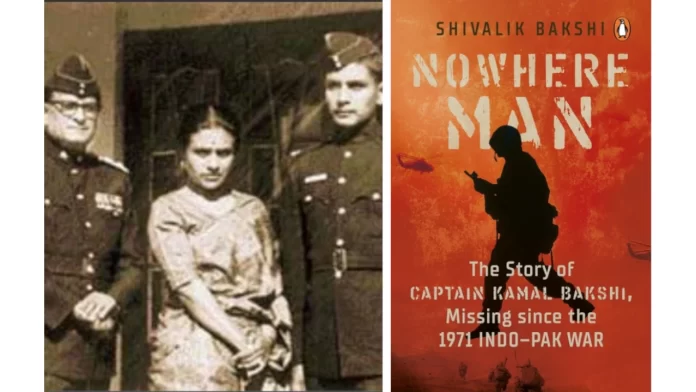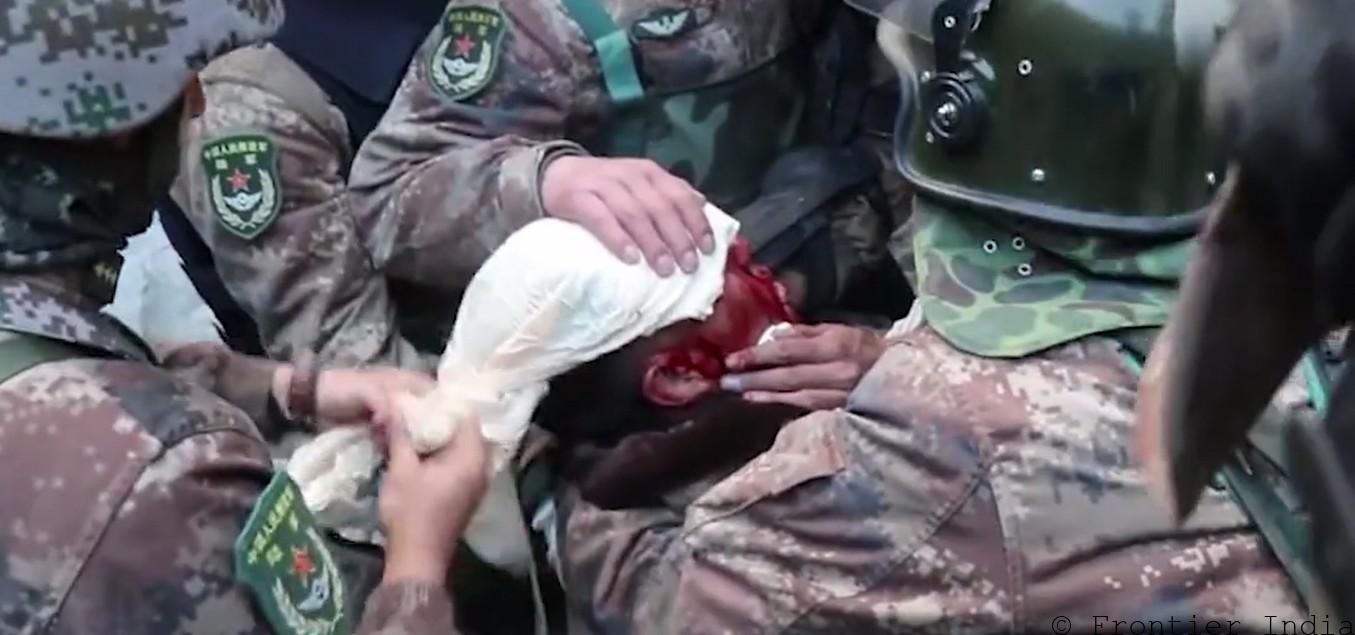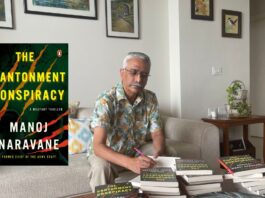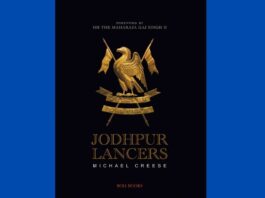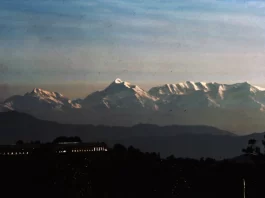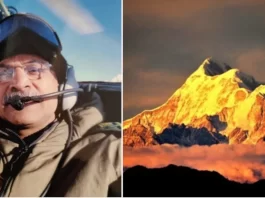First of all, I must thank Shivalik Bakshi for writing the gripping story of his maternal uncle Capt Kamal Bakshi of 5 Sikh, and his mother Kiki Bakshi, who is in touch with me for over a decade and a half on one of the most in-human, heartbreaking, brutal and unfortunate human rights tragedy not only of her captive brother Capt Kamal Bakshi but also of the so-called 54 Indian POWs languishing in the Pakistani jails since 1971 Indo- Pak War and liberation of Bangladesh. All Indo-Pak wars of 1947, 1965, and 1971, or the Kargil fiasco have had adversely savaged Pakistan’s image in the civilized comity of nations. In any war truth is sadly the first causality. How this figure of 54 has been arrived, no one knows. According to my research, then Minister of State for External Affairs S Kundu on 12 Apr 1917, to a question had informed in Lok Sabha that there were 54 POWs of the 1971 War in Pakistan but according to PTI-HT correspondent on 21 Apr 2014, ‘As many as 54 Indian soldiers, who were captured as Prisoners of Wars during battles of 1965 and 1971, are still believed to be in Pakistani jails, according to an RTI reply. ‘There are 54 prisoners of war jailed in Pakistan. Six of them, Lt V K Azad, Gunner Madan Mohan, Gunner Sujaan Singh, Flight Lt Babul Guha, Flying Officer Tejinder Singh Sethi, and Sqn Ldr Dev Prasad Chatterjee, were captured in the 1965 war while the other 48 were imprisoned in the 1971 war,’ the MEA said in its response. A Tri-Service Committee has been formed in the Ministry of Defence to look into the matter, it said. Even if the above is true, then from where Sep Jaspal Singh of 15 Punjab was declared dead, emerged in Oman in later years. I contacted MOD and Indian Defence Attaché Capt Nair (IN) whose routine reply to me sadly was that the Oman Government had stated it had no such person in their captivity or words to that effect. Please read his story covered by me in Aman Ki Asha (AKA) which is a campaign for peace between India and Pakistan, jointly initiated by the Jang Group of Pakistan and The Times of India Group, run by a Pakistani journalist, artist, and filmmaker focusing on human rights, media, and peace Ms. Beena Sarwar; living in Boston and in touch with me over the years.
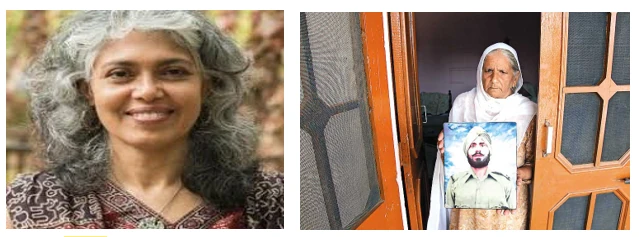
To resolve animosity between the two neighbors who till partition shared the same culture, music, and language as one nation, I have been taking initiatives at my little end to bring them closer.
In his book Shivalik Bakshi initially mentioned that Maj AK Suri of 5 Assam was martyred in action which subsequently was reversed his being a POW in Pak captivity. While talking to Lt Gen SK Pillai, PVSM (Retd), former Colonel of the Regiment (COR) of the Assam Regiment, who was my Directing Staff (DS) in the IMA had told me that Maj Ashok Suri was killed in action and Subedar Major (SM) of the Battalion with few men cremated him and brought his steel helmet as evidence. I enclose the email of late Lt Gen SK Pillai, addressed to Maj Gen Prem Puri (then COR Assam Regiment) with BCC to me-
Dear Prem,
1. The details regarding our three 5 Assam officers who are thought to be PWs in Pak are given below. Please confirm the facts as given, as you were right there in the 1971 Chhamb Battle.
2. IC 23283 Capt Giri Raj Singh (platoon commander of ‘A’ Company of 5 Assam) was in the Burejal area which was attacked by troops of Pak 4 Punjab. He fought heroically till the last round and he was the last man; it is not clear whether he was killed or wounded and captured.
3. IC 23148 Capt Kalyan Singh Rathod ( 6 Platoon commander of B Company of 5 Assam) was deployed in the Barsala Village area and his platoon was attacked by a Pak troop of a squadron of presumably 26 Cavalry of 2 Armoured Brigade and a company of either 19 Baluch (Recce & Support Battalion) or 4 Punjab. He too kept fighting heroically in the last man, last round tradition. It is not clear whether he was killed, or wounded and captured. In Jan 1972, at a flag meeting, a Pak officer had said that Pak troops had shouted to Rathod to surrender and he replied with a burst of LMG fire. It is not clear if he was killed or wounded and captured.
4. SS 19809 Major Ashok K Suri was QM of the Battalion and died due to shelling in the Chhamb bridge area when he had taken B Echelon vehicles forward with ammunition. We have Battalion witnesses of his cremation. The three letters from him, written from a Karachi prison to his now deceased father are a mystery, though the initial mix up with a deceased Kumaoni officer of the same name (Major AK Suri, 7 Kumaon) and Major Mani Ghatraj’s helmet worn by Ashok when he died was cleared up subsequently.
5. After receiving replies from you, Col of the Regt and Col Amrik Malhi (CO, 5 Assam), I will send our response to Col Narindra Bhatia who is fighting for the release of our soldiers in Pak custody. He is a BCC on this letter.
Tagra raho
Warmly,
Sushil
I had met Capt Ravindra Kaura’s elder brother way back in 1992 while I was still in service in Mumbai in a chance meeting. He was an affluent businessman in Mumbai who came to Delhi and we met DGMI and the Secretary in MEA dealing with Pakistan BUT to no avail. I had met Ravindra’s parents in their house in New Delhi.
In a book published in 1980 titled ‘Bhutto- Trial and Execution’ written by Victoria Schofield, a senior BBC London reporter, covering the period 1978 when Bhutto was detained in Kot Lakhpat jail, Lahore. Page No. 59 reads: ‘(Bhutto’s) cell separated from a barrack area by a 10-foot high wall, did not prevent him from hearing horrific shrieks and screams at night from the other side of the wall. One of Bhutto’s lawyers made inquiries amongst the jail staff and ascertained that they were, in fact, Indian Prisoners of War who had been rendered delinquent and mental during the course of the 1971 war’-
‘..Fifty-odd lunatics were lodged in the ward next to mine. Their screams and shrieks in the dead of night are something I will not forget,’’ wrote former Pakistan Prime Minister, Zulfikar Ali Bhutto, referring to Indian Prisoners of the War of 1965 and 1971 who were kept in a cell next to his in Kot Lakhpat prison.
Ms Barkha Datt, then top NDTV anchor in her weekly program ‘We the People’ along with me, late Awais Sheikh, Pakistani lawyer fighting cases of Indian and Pakistani prisoners on both sides, Delhi-based Pakistani journalist with TOI Ms Sonya Fatah (niece of Pakistani human rights official retired Pakistani Brig Rao), former Foreign Secretary, Mr. KC Singh, retired Justice Katju, Dr. Simmi Waraich (d/o Maj SPS Waraich), Mr. Gill b/o of Wg Cdr Harsharan Singh Gill, POW in Pakistan, Mr.
Javed Jabbar an award-winning writer, filmmaker, former senator and federal minister in Musharraf’s cabinet, and many more whose names I can’t recollect, debated the POWs issue involving both countries.
Later, many Pak commentators raised names of 18 Pakistani POWs and I requested the list and details BUT unfortunately, neither Mr. Awais Sheikh, Sonya Fatah, or Mr Javed could give the names, numbers, ranks, units, dates, places, and operations where they were captured/ apprehended by the Indian troops.
In his book ‘Battle of Husaini Walaand Qaiser e Hind’ on 1971 War, Lt Col (Retd) Habib Ahmed SJ has stated that Maj Waraich captured in Hussaini Wala on the very first day of the war, while trying to escape was shot dead which was refuted by his adjutant creating huge doubt in our minds about his death and refuted too. Dr Simmi Waraich has refuted these details as many petty smugglers pledge having seen and met Maj Waraich in Pakistani jails and discrepancies in the statements of Lt Col Habib Ahmed, CO 41 Baloch. However, this account is contradicted by Col Parvez Iqbal (Retd), Adjutant of 41 Baloch at the time.
I have been in touch with Kamal’s Sherwood College friends through US marine Surgeon Thakur Patel in the US & others in Australia. Also, had been in touch with Ms. Indian origin Jas Uppal, a practicing solicitor and the founder of ‘Justice Upheld in the UK, and constant touch with Dr Simmi Waraich, Mr. Gill, the family of Capt Kaura, Wg Cdr Grewal, TG, your mother Kiki Ma’am, many human rights activists world over and many journalists writing in many papers in UK, Pakistan and the US.
I write extensively and my article ‘Indian prisoners of war holed till death in Pakistan’ was printed in ‘The Lahore Times’ on 24 Oct 2012. Below is a detailed summary of this article:
The intricate issue of Prisoners of War (POWs) between India and Pakistan has persisted for decades, characterized by diplomatic standoffs and bureaucratic obstacles. Documentation from October 2012 emphasized the manner in which perpetrator states maintain the isolation of prisoners of war (POWs) from operations until their eventual release and repatriation, for a variety of legitimate and illegitimate reasons.
Dr. Simmi Waraich, Mr. Gill, and Lt Gen Raj Kadian, among other concerned parties, convened at Kashmir House on January 10, 2014, to meet with Vice Admiral Patnaik, the chairman of the Committee for Monitoring Missing Military Personnel (CMMPD). Nevertheless, the meeting was unsuccessful, as Patnaik was unable to furnish information regarding Indian prisoners of war in Pakistani detention. There were numerous attempts to engage with Indian leadership, such as petitions to Prime Minister Modi and meetings with then-Defense Minister AK Antony. However, these endeavors did not produce any tangible results.
Progress remained elusive despite diplomatic efforts through various channels, including the involvement of Brig. (later Maj. Gen.) Arvind Bhatia as an Indian Defense Attaché in Pakistan. Additionally, endeavors to capitalize on political connections, including requesting that Navjot Singh Sidhu communicate with the then-Pakistani Prime Minister Imran Khan, were unsuccessful. In a press interaction in Agra during his visit to India, Musharraf categorically denied the existence of Indian POWs in Pakistan.
Two Indian delegations, which included members of the POW family, traveled to Pakistan in quest of their relatives. However, substantial obstacles impeded these missions. These obstacles included the language barrier in Urdu correspondence, the ongoing surveillance by the ISI, and the difficulty in identifying individuals due to physical changes over time. The parliamentary route proved equally exasperating, with discussions dismissed on the grounds of sub judice.
Pakistan’s contradictory posture, which denies the existence of Indian POWs while asserting that India holds 18 Pakistani POWs, further complicates the situation. However, Pakistan’s list remains limited to 17 names, and they have failed to provide crucial details such as unit numbers, positions, and capture information for these alleged POWs. India maintains that Pakistan continues to retain 54 unrepatriated POWs, a dispute that has persisted since the 1965 and 1971 conflicts. Strong governmental action appears to be necessary for the resolution, but Pakistan must make the difficult choice of either acknowledging decades of denials or continuing to incarcerate captured soldiers after more than 50 years. The list of names includes:
- Ilamuddin
- Muhammad Arif Jan
- Muhammad Jurjees Nagi
- Kaleem Muhammad
- Muhammad Akhtar
- Zakar Rehman
- Muzaffar Ahmed
- Bagh Hussain
- Lnk Abdul Ghani
- Muhammad Ismail
- Abdul Rehman
- Muhammad Afzal
- Muhammad Aslam
- Muhammad Khaliq Khan
- Aitbar Khan
- Abdul Haq
- Abdul and Muhammad
Shivalik Bakshi, like many similar writers, including myself, gained critical acclaim for his debut biographical portrayal of his maternal uncle, Capt. Bakshi. of fellow Indian prisoners withstanding gruesome conditions due to poor Indian intelligence and appreciation for our military’s Pakistani deployment in Chhamb Sector in the western theatre, vis-à-vis deeply gripping narration of liberation of Bangladesh with enemy’s pants down! All authors vividly describe the pre-capture details of their characters but recreate post-capture details based on interviews of compatriots, circumstantial evidence own beliefs, and some hearsay. Sadly, to start with, our armed forces fought with our adversaries, in every war forced us on the back foot due to poor intelligence and faulty enemy appreciation and troops’ deployment and own non-matching, meager, and faulty resources. While such narrations give distant readers more insight into the
personalities of individual soldiers and their family connectivities; they seldom help in creating a conducive environment to get them released from the enemy captivity as per the Geneva Conventions from a rogue country. Pakistan is a notorious barbaric country that treats Indians as POWs. Negating the Geneva Convention how can we forget torture and other forms of cruel, inhuman, or degrading treatment or punishment (commonly known as CIDT or other ill-treatment like forced sodomy by hardened criminals) constitute one of the most heinous forms of human rights violations and prohibited. Popularly known as Joe (then 2/Lt)
and later late Col AGJ Swittens (37 NDA), was one such victim whose horrendous story was written by his course mate & close friend, Gp Capt Unni Kartha (Retd). I was in touch with Joe who sadly passed away in 2015 in Pune of a brain hemorrhage.
Shivalik, like many authors and writers on POW stories has given us a deeper look at the personality and family details of Kamal Bakshi in an extraordinary narrative of human perseverance, resilience, endurance, leadership, and regimental traditions deftly portraying the deeply complicated realities of the war in gripping narratives, yet in final analysis all these stories lay us stray ‘how to get back our loved ones from the enemy captivity’ that falls on the shoulders of our governments and political masters. India may be on the verge of becoming 3rd largest economy and master of information technology (IT). However, as a soft power, we cannot match the rogue states like Pakistan. We need to be strong industrially, economically, militarily, and with our strong convictions and alliances like Israel and North Korea as just two examples. While Japan, South Korea, Australia, India, and many European and Asian countries are economically and industrially strong, they too depend on sure-shot dependable alliances. We need to be strong economic, IT, military, and nuclear powers with effective diplomacy and alliances with like-minded countries to protect our interests. Our soldiers fight to the last man last round knowing well country will look after their family if martyred and ensure their release if taken as POWs by the enemy country. This is the greatest motivation and morale-raising factor in our armed forces.
India, Pakistan, and even Bangladesh once one country have suffered immensely despite similarities in culture and language due to hatred and misgivings. It’s time to resolve these issues once forever and efforts and resources on fighting spent on eradicating hunger, malnourishment, illiteracy, poverty, and ‘people-to-people contacts’. The politicians in all these countries and the military on both the west and east of our country are dividing the Indian sub-continent. I earnestly request India and Pakistan to resolve all their past issues that are deterrent to peace, eradication of poverty, malnutrition, and economic development. With time many of the POWs of 1971 or even the 1965 Wars, may be either skeletons or died in captivity, repatriated. I request, sadly those not surviving, their families after proper DNA tests are handed over their mortal remains for a befitting farewell. This real gripping story ’NOWHERE MAN’ is not only the agony of Capt Kamal Bakshi alone BUT as ’NOWHERE MEN’ story of all the brave-heart POWs and NOT criminals languishing in adversaries’ jails while serving their motherlands and MUST be released forthwith with dignity and honor. I SALUTE them and their families for their struggle and perseverance and urge our government to shed their inabilities and get them released on top priority to be able to live with their missed families whatever little life they are left with.
‘Jai Hind’.
